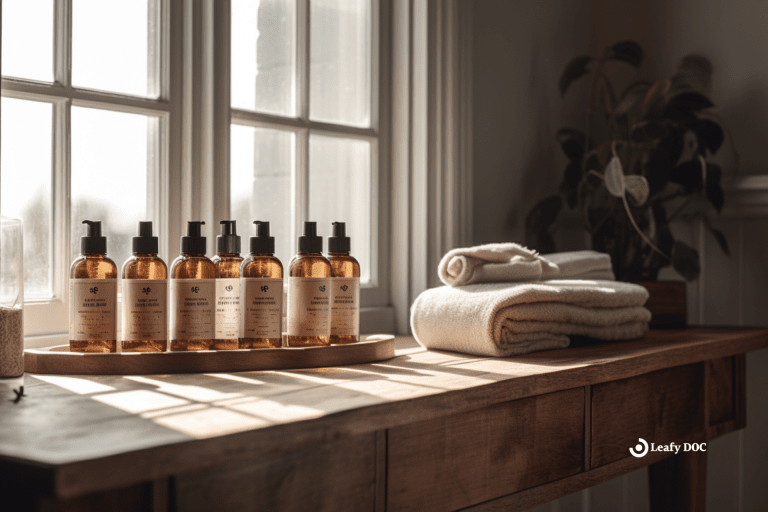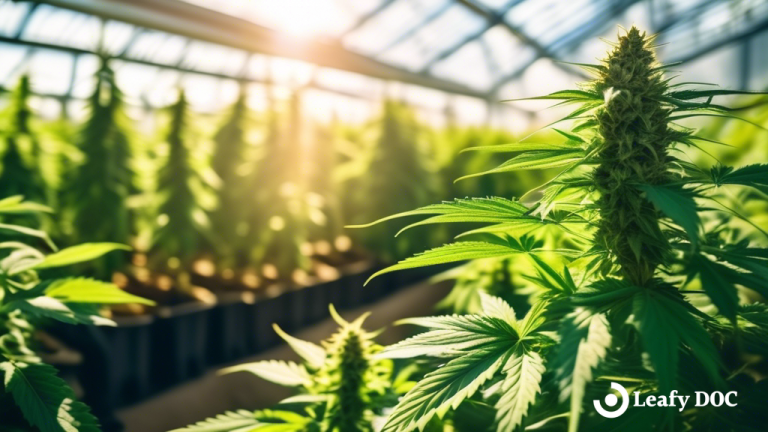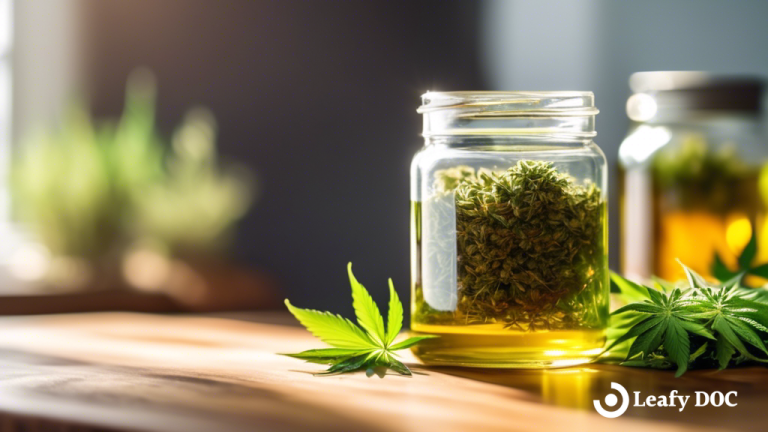Acne
Acne is the most common skin condition in the United States and affects nearly 85 percent of people ages twelve to twenty-four. Recent studies have suggested that CBD and other cannabinoids have the potential to help relieve skin conditions and reduce inflammation to relieve pain.
What is Acne?
Acne is a commonly found skin condition that primarily affects teens and young adults. It causes pimples, and sometimes cysts, on the face, forehead, and upper body.
Various internal and external factors can affect acne production and severity, including:
- Genetics
- Hormonal levels
- Air Humidity
- Stress
- Grooming Practices
- Medications
- Sweating from sports/workouts
- Diet
- Clothing material or pressure
- Squeezing/Picking Acne
Types of Acne
Many different types of Acne can appear on the body for one of the above reasons. They include:
- Blackheads: Oil and dead skin cells can cause follicles to become blocked and forms a dark spot under the skin that resembles dirt.
- Cysts: Deep, pus-filled pimples that can cause scarring
- Fungal: Inflamed bumps that itch, created by excess yeast in the hair follicles.
- Nodules: Deep, solid pimples that are typically large and painful.
- Papules: Tiny, pink, inflamed bumps on the skin’s surface.
- Pustules: Pus-filled pimples that are surrounded by red rings and can cause potential scarring if popped.
- Whiteheads: White-colored bumps close to the skin’s surface, covered by dead skin residue and oil.
Acne Grading Scale
The following includes various grades of Acne that are experienced, ranging from mild to severe:
Grade 1 – Mild Acne Breakouts
- Whiteheads/Blackheads
- Little to no papules/pustules
Grade 2 – Moderate Acne
- Many papules/pustules on the face
Grade 3 – Moderately Severe Acne
- Several papules or pustules
- Some inflamed nodules
- Face, back, and chest acne
Grade 4 – Severe Acne
- A large number of deep, painful, and inflamed cysts
Skincare Benefits of Medical Cannabis
Cannabis, especially CBD, is highly prevalent in today’s society. CBD to control pain and treat skin conditions can be traced back to ancient times, as they used it in abundance during religious practices and rituals.
The earliest uses of cannabis for skincare can be traced back to Ancient Egypt. Pharaoh Ramses II was known to partake in cannabis and encouraged others to use the plant.
During the 20th century, cannabis was extensively criminalized; however, changing laws and further research into the compounds within the plant led to a slow but vast reconsideration of their potential health benefits. The use of cannabis is becoming more widely accepted today due to the balancing effects of this particular cannabis-derived compound.
“CBD can bind to receptors in the human body that are part of the cannabinoid system, called the endocannabinoid system, that can influence pain, itch, and mechanisms of inflammation,” Dr. Friedman states.
“We know that when CBD binds to the cannabinoid receptor type 2 as well as other receptors, it can be involved in not just anti-inflammatory activity, but it can become the chemical messengers to facilitate an array of activities that resolve inflammation. It can stimulate the secretion and recruitment of skin cells that are important for removing debris and allowing for proper skin maturation and healing.”
The Endocannabinoid System
Cannabinoids are found in the cannabis plant and are produced naturally by the human body. We have an endocannabinoid system (ECS) that internally produces cannabinoids. These compounds are essential to maintaining internal balance through many-body systems.
Cannabinoids interact with our ECS to help maintain functional balance through a system of messenger molecules and receptors. Sleep, energy, cardiovascular function, reproduction, stress, chronic pain, motivation, appetite, digestion, and more are some of the body functions that cannabinoids impact.
The endocannabinoid system comprises an extensive network of chemical signals and cellular receptors densely packed throughout our brains and bodies. The “cannabinoid” receptors in the brain — the CB1 receptors — outnumber many other receptor types in the brain. They act like traffic cops to control the levels and activity of most of the other neurotransmitters. This is how they regulate things: by immediate feedback, turning up or down the movement of whichever system needs to be adjusted, whether hunger, temperature, or alertness.
Our bodies produce molecules called endocannabinoids to stimulate these receptors, which have a structural similarity to molecules in the cannabis plant. The endocannabinoid system regulates learning and memory, emotional processing, sleep, temperature control, pain control, inflammatory and immune responses, and eating. This vital system is currently at the center of renewed international research and drug development.
CBD and Acne Studies
A 2016 study of the cannabis plant’s antibacterial and antifungal effects showed that they might help reduce infections from skin pollutants. While the initial results seem hopeful, human trials are still needed to confirm the findings. For physicians to confidently recommend cannabis products as an acne treatment, there will need to be further evidence.
Researchers recently observed how skin reacts to CBD products and found that all participants had better skin in two weeks. This study was impressive, considering it’s unusual to have such a large percentage of people experience results. This scientific evidence means CBD could potentially treat acne.
CBD can influence skin oil production and inflammation, which promotes the development of pimples. Research from The Journal of Clinical Investigation reports that CBD can inhibit extraneous lipid production in the skin. This study shows that CBD slows lipid production and normalizes imbalanced skin lipids.
A recent study in 2014 was published in The Journal of Clinical Investigation. In this study, researchers measured the effects of CBD compounds on human skin cells and oil-producing glands in a laboratory. The researchers found that CBD prevents these cells from producing too much natural oils. The study also showed that CBD triggers an anti-inflammatory reaction in the skin cells and sebaceous glands. They concluded CBD might be an effective acne and inflammatory skin diseases treatment due to its extreme anti-inflammatory response.
Does smoking weed cause Acne?
No solid evidence suggests smoking marijuana can cause acne or worsen development or severity. However, certain studies have indicated that cannabis could make existing acne worse. Typically, these claims focus on four common side effects of cannabis consumption. Let’s find out more about marijuana smoke and acne below.
- Appetite Increase: Increased appetite after cannabis use can lead to unhealthy snacking habits or overeating. Insulin levels rise when eating sugar, leading to inflammation and a process that can induce Acne called glycation. Eating snacks high in oil and butter, like chips or popcorn, can clog pores if you touch your face while eating.
- Hormonal changes: One study reports that cannabis can slightly increase hormonal levels that can increase oil production on the skin and trigger acne breakouts. Another study suggests that marijuana use can decrease testosterone levels for 24 hours.
- Stress and Anxiety: One of the most common adverse effects cannabis consumers report is a short-term increase in anxiety. Some studies suggest connections between stress levels and how cannabis can affect acne production.
- Smoking Weed: If you smoke weed, that affects aging and increases the risk of inflammation and poor skin health.
Summary
Cannabis may not be a cure-all for helping with Acne, but some significant research supports its therapeutic benefits for the skin. Many cannabinoids have anti-inflammatory properties, so using a CBD or THC-infused topical along with your physician’s prescribed treatment could significantly enhance the effects and speed up your road to clear, healthy skin.
Last Updated: June 14, 2024
Get Your Medical Card
Connect with a licensed physician online in minutes
Table of Contents
Keep Reading
-
3 CBD Oil Hair Treatment Recipes
Unlock the secret to gorgeous hair with our 3 CBD oil hair treatment recipes. Transform your mane into luscious locks with these luxurious and healthy solutions. Click now to try them for yourself and enhance your hair’s natural beauty!
-
The Benefits Of Using Organic Fertilizers In Cannabis Cultivation
Discover the secrets to enhancing your cannabis cultivation with organic fertilizers. Learn how going natural can lead to healthier plants and better yields. Don’t miss out on the benefits – read now!
-
How To Make Cannabis-infused Oils: A Step-by-Step Guide
Discover how easy it is to make cannabis-infused oils at home with our detailed step-by-step guide. Elevate your cooking and wellness game by learning this essential skill today!



